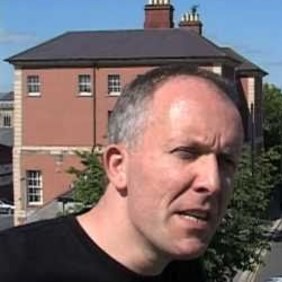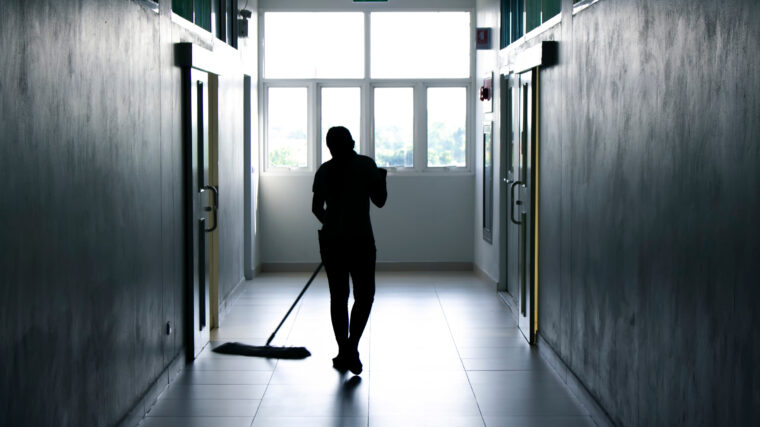Once again, there is a drive to establish a new university in the Northern Irish city of Derry – a city, because of its integral role in Ireland’s peace process, that has become regarded as an exemplar of real-world conflict resolution and a haven for free discussion.
Derry’s first university was established in 546 AD by its patron saint Colmcille. Back then it was called a monastery, but there is little dispute that Colmcille’s enduring legacy was as one of the leading European teachers and scholars of his era.
As Ireland’s oldest continuously-inhabited city, Derry remained one of these islands’ most important seats of learning throughout the Middle Ages, becoming home to a number of High Kings. Its scholastic tradition was still very evident during the 18th century, when, as Ireland’s richest plantation city, it appointed the philosopher George Berkeley as Dean of St Columb’s Cathedral, despite strong lobbying from Jonathan Swift for the position.
The 19th century saw Derry become an industrial hive and the “shirt-making capital of the British Empire”. It also witnessed the opening of Magee College, which would become a constituent of the Royal University of Ireland and then Trinity College Dublin.
It was after the partition of Ireland in the 1920s that things began to go wrong for Derry. Badly wrong. The new border cut the city off from its southern Irish hinterland. And successive, unionist-controlled Stormont governments began a policy of restricting all investment to the Greater Belfast area or ‘east of the [river] Bann’.
Derry – which had a nationalist majority but was then ruled by a unionist council, thanks to some classic gerrymandering – was all but abandoned. Shipyards, naval bases and rail-links were closed down. To this day, Derry has only one rail-line – to Belfast.
Instead of developing Derry, Stormont sank millions into a disastrous attempt to establish a new unionist city at Craigavon. In the seminal book about this era, ‘Countdown to Disaster’ by the former Derry Journal editor Frank Curran, the Nobel Laureate John Hume referred to this policy as the “isolation of the west”. And the discrimination it left in its wake helped spark the civil rights movement in the 1960s.
The final straw was the decision, made in 1965, not to site the North’s second university in Derry but instead locate what would become Ulster University (UU) in Coleraine. The Lockwood Report, which rejected Derry’s bid, also recommended the closing of Magee College.
Magee survived, barely, as a campus of UU, but the decision to refuse Derry its reasonable ambitions to run its own university was a blow from which the city still has not recovered. The Labour peer Andrew Adonis recently described the decision not to locate a university in Derry as a “social and sectarian scandal”. And there are few living in the city who would disagree with him.
Why now?
Two issues in particular are motivating Derry.
First is the reluctance of UU and Stormont to deliver for the North West, most recently manifested in the decision by UU to construct a new £500m campus in Belfast instead of Derry.
A decade ago, UU announced an aspiration to increase students in Derry to 10,000 full-time students by 2020. But even by UU’s own figures, the number has remained static at a little over 4,000 and, since the advent of Brexit, has started to fall. The actual number of students attending Magee on a full-time basis, as distinct from those registered there, is believed by UU staff and residents of Derry’s quiet university quarter to be much lower.
The other issue focusing Derry is Brexit and the very real concern that the hard border with the South, removed as part of the 1994 peace process, could be re-established when Britain leaves Europe.
The Foyle Constituency (of which Derry is the largest part) voted by 78 per cent to 22 per cent to remain within the EU. Derry knows it risks drastic, renewed isolation without partners in Dublin and Brussels. And an independent university is seen as a means of militating against the damage already being done by Brexit uncertainty in the North West.
The timing for Derry, in some respects, might be fortuitous. Dublin still has payments to make on the £3.2bn crisis loan it leveraged from UK in 2010. Meanwhile, Britain owes the EU £39bn under the terms of its Brexit divorce settlement.
Some economists are now proposing that the Irish and British could, and should, re-purpose their monies owed to facilitate the development of key “Brexit relief” projects – and specifically a new university for the most Brexit-impacted area of these islands.
Funding a new university
Proper funding will be key to the success of a new Derry university – and it is not going to come from Stormont. UU, with Stormont backing, has ensured that all devolved HE funding will be required to support and sustain UU’s new Belfast campus for the next decade or more.
Derry university campaigners are already engaging with international partners, private funders and philanthropists. There is also a strong case being made for UU to hand back the lands at Magee, and its associated funding, to Derry.
But ultimately governmental support – from London, Dublin and the EU – will be essential.
Political support for a standalone Derry university has also become more apparent recently, thanks to decisive interventions from the likes of Andrew Adonis in the House of Lords, visiting Labour Party frontbenchers Mike Kane and Mike Amesbury, and from senior Irish governmental officials.
And a recent vote by Derry/Strabane Council to support plans for an independent university, after years of partnering with UU alone, may just well prove the tipping point.
What more fitting way could there be to mark a decade since the city’s transformational City of Culture year (2013) than to establish a lasting legacy in the form of a university? This ancient Irish scholastic region has so much to be proud of, so much to celebrate and so much potential to tap.
It is imperative now that we move from campaigning to delivery and build the university that will release our long-held ambitions and ensure a prosperous future for northwest Ireland for many generations to come.













